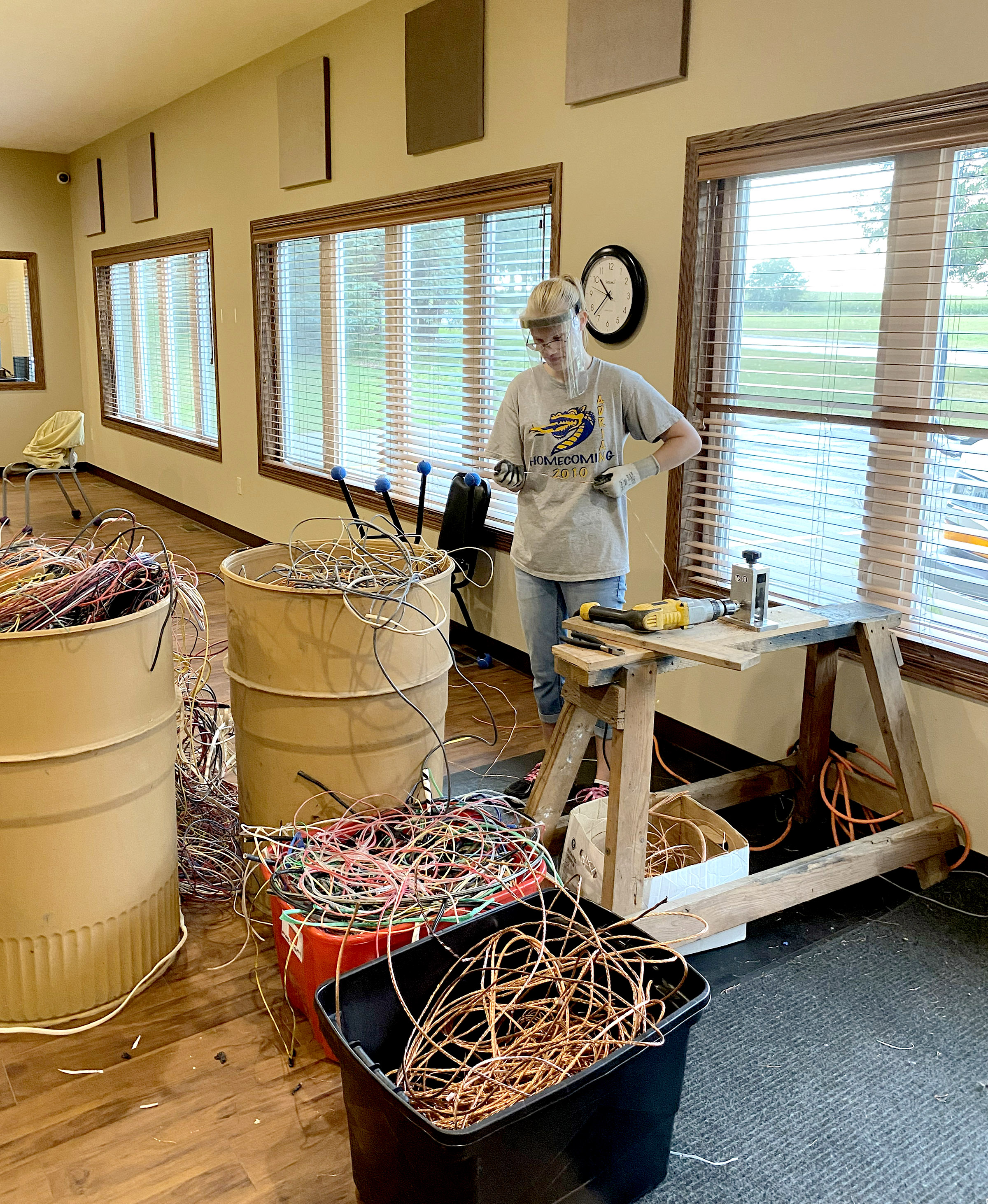
Pandemic economic relief aid is helping businesses cover losses; however, Rock County Opportunities has been quietly bleeding revenue — over $200,000 with no government relief in sight.
Until Friday. That’s when Gov. Tim Walz signed into law a bill that includes $30 million for disability service providers like RCO in Luverne.
“The people most impacted by COVID-19 have been our most vulnerable populations. Directing this funding to disability service providers will help ensure we don’t leave anyone behind,” Walz said in a statement released Aug. 14.
“This bill will provide direct support to ensure Minnesotans with disabilities and older Minnesotans continue to receive critical services amid COVID-19.”
For RCO director Elizabeth Shear, the new law is welcome news, but it’s too little and it’s plenty late.
“They finally got it done in the third special session,” she said. “It didn’t even reach the House floor in the second session … we kept falling through the cracks.”
Further, she said it covers 66 percent of one month worth of losses, based on January’s revenue.
“So, we lost 3 1/2 months worth of revenue, and we’ll get 66 percent of one month,” Schear said. “And our revenue was already down in January because of federal changes that caused loss of referrals for clients younger than 25.”
Real losses for real lives
Meanwhile, the real losses are felt in the lives and families of disabled adults with nowhere to work.
When stay-at-home orders were issued at the start of the pandemic, RCO clients were no longer allowed inside the RCO facility or at their work sites.
For many, these jobs provide a sense of accomplishment and purpose along with a much-needed structure in their daily schedules.
“It makes me happy to be able to come and work at RCO,” said client Brandon Basche. “Being able to work makes me feel more independent and I enjoy being able to interact with the staff at RCO.”
Similarly, Amber Schieck said she’s glad to return to RCO, even if it is limited hours.
“I am glad to be able to come back and work at RCO to make more money and see the staff and others at the building,” she said.
“It made me sad when I was not able to come to RCO because I missed my friends, staff, and being able to make money.”
Her current job involves stripping electrical insulation off wires in order to sell the copper.
“I love coming to RCO because everyone there makes me feel like I’m their equal and helps me become more independent and learn new jobs and skills,” she said.
Without the work, Schear said RCO clients are suffering emotional as well as financial distress.
Value in the community
That’s why she said it’s so frustrating that organizations like RCO have such little impact in St. Paul and Washington, D.C., where funding decisions are made.
“How do we get the message to them that we have value in this community?” Schear said.
She said lawmakers have a history of shying away from funds for disability service providers because of misconceptions that providers are using disabled workers to make money.
“There just isn’t a whole lot of support out there,” Schear said. “At one time, federal lawmakers suggested doing away with organizations like ours altogether.”
The incentive for employers to hire disabled workers is that they can pay less than minimum wage, but the misconception is that the workers get $5 per hour and the employer pays minimum wage or higher.
“That’s simply not true,” Schear said. “We charge employers the average the worker makes. The employer gets a benefit for hiring people with disabilities.”
Springbrooke Events in Beaver Creek hires RCO for laundry services, and manager Chris Youngeberg said he’s pleased with the arrangement.
“Since we reopened the Bar and Grill and Event, RCO has been our exclusive partner in laundering our linens and towels,” Youngeberg said.
“They do an excellent job, and the price can't be beat. They have never let us down. They always get our linens back on time and looking as good as new.”
Stretching the dollar
Of the $30 million the new law provides for disability service providers, $10 million will be set aside for public health grants for COVID-related expenses, such as personal protective equipment or additional staff to meet new pandemic mandates.
The remaining $20 million will be spread among 110 providers statewide, including those with massive budgets that might claim millions of dollars in losses.
“Some of their annual revenues are in the tens of millions,” Schear said. “They might get a big chunk of that $20 million, so the money won’t go that far.”
According to the governor’s office, the bill signed Friday provides aid from the federal Coronavirus Relief Fund to assist certain disability providers with the costs of business interruptions caused by COVID-19.
It also helps ensure access to these services during and after COVID-19; makes it easier for people to apply for economic assistance programs during COVID-19; and expands the universe of providers who can access a DHS grant program that supports people with disabilities and older adults.


